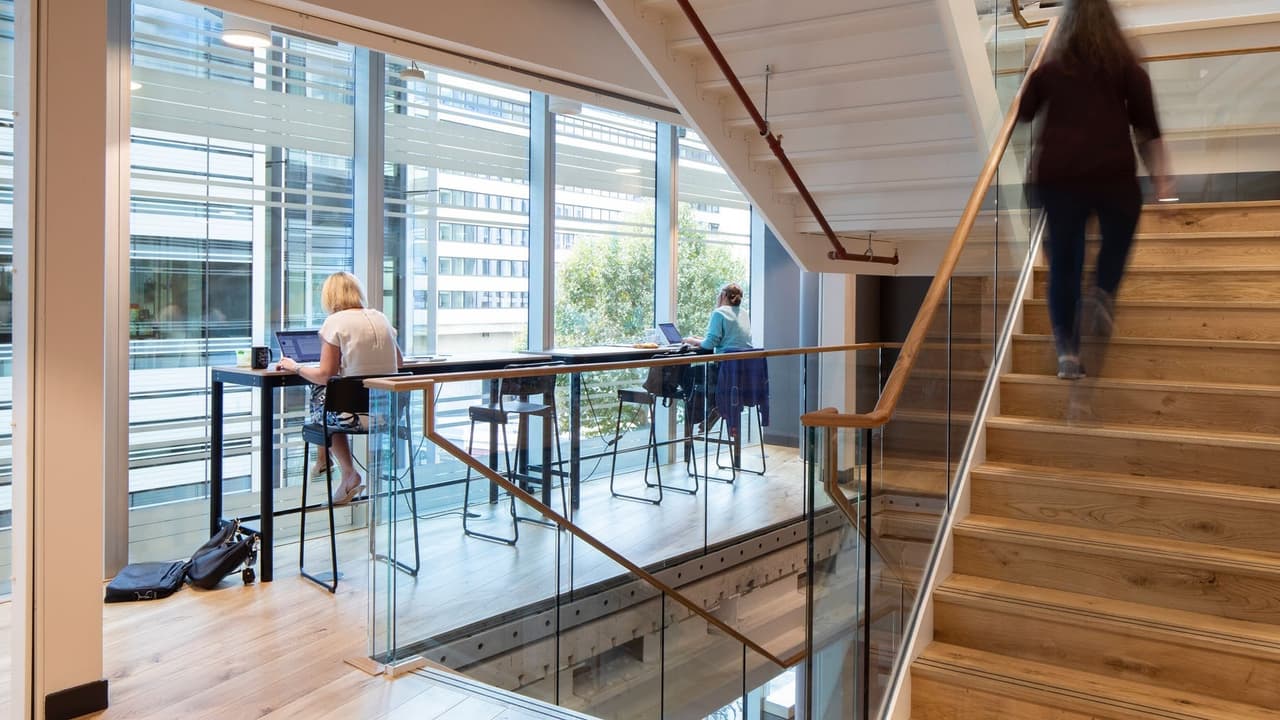
Council gives WeWork £4.5m rent holiday as Covid crunch hits
A council that spent £1bn on commercial property to boost its income has secretly let a key tenant put off paying millions of pounds in rent because of the coronavirus pandemic.
Spelthorne council in Surrey agreed an 18-month rent deferral with WeWork, the embattled property management company, amounting to a £4.5m short-term loss for the council – the equivalent of more than a third of its cash reserves. A report leaked to the Bureau shows that three senior councillors agreed to the company’s request to help it “absorb difficulties brought about by the Covid crisis” behind closed doors.
The agreement calls into question the council’s investment strategy, and represents a significant blow to its financial future and a worrying sign for the local government sector.
On Thursday night, the council leader, who was one of the three to approve the deal, resigned before a motion put forward for his removal. His replacement has pledged to investigate Spelthorne's property investment strategy.
The pandemic has already forced the council to make almost half of its cash reserves available to meet the costs of handling the crisis.
Senior councillors agreed to the plan after admitting the council, which is dependent on rental income to balance its books, would struggle to find another tenant for its Hammersmith Grove offices in London, and would face significant costs if WeWork had to leave the building, which it bought for £170m in January 2018.
Hammersmith Grove was the second most expensive purchase in Spelthorne’s £1bn investment spree – funded entirely through borrowing – which tied the future of public services in the borough to the vagaries of the property market.
The council and WeWork declined to comment when contacted by The Bureau.
In exchange for the rent deferral, WeWork is to extend its 20-year lease at Hammersmith Grove by a further five years. This effectively means Spelthorne council will only start recouping the lost income from 2037. WeWork’s rent free period will be staggered in six- and three-month increments over the next five years. The company’s 70 coworking spaces in the UK, most of which are in London, have stayed open during the pandemic. Last November it laid off 2,400 employees globally following its highly-publicised failed IPO and it is currently undergoing a second round of redundancies in the UK.
The council is believed to have granted another rent deferral, for 13 months, to a tenant at another of its investment properties, the £73m Porter Building in Slough. It is unclear whether the council can afford to offer deals to its other tenants –- according to an FOI response, the council had 41 “commercial clients” connected to its property portfolio as of June 2019. Before the crisis, the net return on the council’s property investments was less than 1%.
The rent deferrals were detailed in confidential reports which – before being leaked to the Bureau – were not publicly available. They were voted through on Monday morning behind closed doors by a special investment committee that only has three voting members, including Ian Harvey, the council leader who led the £1 billion investment programme, and his wife, Helen, who was appointed by her husband as the council’s cabinet member for investments.
 Spelthorne town hall. The council borrowed £1bn to invest in commercial property
Daniel Mackenzie/Google Maps
Spelthorne town hall. The council borrowed £1bn to invest in commercial property
Daniel Mackenzie/Google Maps
The agreement proved one of Harvey’s final acts as a senior councillor, as he resigned as council leader on Thursday night. His replacement, John Boughtflower, a Conservative councillor, said his first action as leader would be to introduce a spending limit so "no single person will ever again have authority to spend tens of millions of pounds without the scrutiny that residents expect and deserve". He added that he would launch an investigation into the council's previous investments.
On June 8 he was deposed as leader of the Conservative group amid increasing concern about the investment policy. In response Harvey, his wife and four other Conservative councillors – including the third voting member of the investment committee – quit the party.
There is no indication within the Hammersmith Grove report as to how the council will absorb the £4.5m loss in income, but in May Harvey asked for an almost identical amount of the council’s reserves to be made available to cover the costs of Covid-19.
The request, which by our calculations amounted to 35% of the council’s total reserves, was pitched as a safety net to cover “the worst case scenario potential impact of the Covid-19 pandemic” if further financial support from the government was not forthcoming.
Help us tell stories like these
Whether you're a journalist, expert in your field or an active in your community, all are welcome to help us make news you can use
Join the Bureau Local networkJust before lockdown was enforced, Spelthorne purchased the Elmsleigh Centre shopping precinct for £40m. The majority of tenants were late paying rent for the first quarter of the year, although the council said it had now collected 91 per cent of rent owed. The next round of payments is due this week.
The British Property Federation told the Bureau it expected an increase in the number of tenants struggling to meet their rent obligations across the country, but that the true extent of the problem would not be clear for several weeks. It pointed to government guidance that encouraged landlords and tenants to work together when bills cannot be paid.
“The success of landlords and tenants working together … is vital to the UK’s recovery and to help ensure that viable businesses in distress as a result of coronavirus are supported, to protect both people’s jobs and the local authorities, savers and pensioners who own the majority of our town centres,” the federation’s chief executive, Melanie Leech, said.
Tip of the iceberg
While businesses closing and a commercial property slump will hit councils that, like Spelthorne, have invested heavily in offices or retail hardest, local authorities across the country use commercial income to supplement their budgets. Local taxes and rates have also been affected by the pandemic as people struggle to pay their bills, and councils have little room to absorb further losses after a decade of austerity.
However, it’s difficult to know which councils are most at risk. Property purchases and financial strategies are often discussed and approved by councillors behind closed doors, on grounds of commercial confidentiality. Some decisions relating to multi-million pound deals are taken by unelected officials under delegated authority. The use of commercial income is not even clearly explained within budget documents, accounts or the returns councils file to the government.
The Bureau has spent more than 18 months investigating the increased commercialisation of local government, including a forensic examination of the situation in Spelthorne. As a result, we have developed sources willing to provide us with information that would otherwise be discussed in secret and withheld from the public. Such in-depth reporting at a local level is needed across the country to establish just how dependent some councils have become on commercial income and the potentially huge impact of business closures in the office and retail market. Here is how you can uncover this information in your area:
- Ask your council what proportion of their income comes from commercial rents
- Ask your council whether any of its commercial tenants have asked for rent deferrals, whether these have been granted and what impact this will have on their budget
- The publication of the latest financial data relating to councils across the UK has been delayed, but the latest information (the projections for the 2019-20 financial year) can be found here. Ask your council for up-to-date information, such as their reserve levels
- Check your council’s debt and investment levels (up to Q4 2019-20) here
Our reporting on local power is part of our Bureau Local project, which has many funders. None of our funders have any influence over the Bureau’s editorial decisions or output.
Header image: The WeWork office space in Hammersmith Grove




